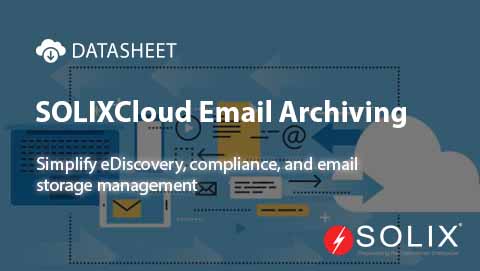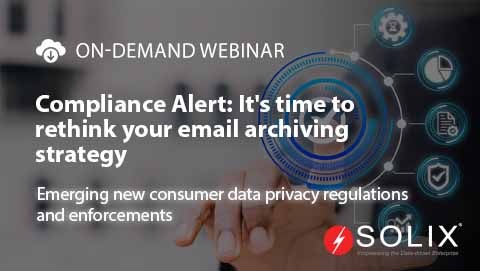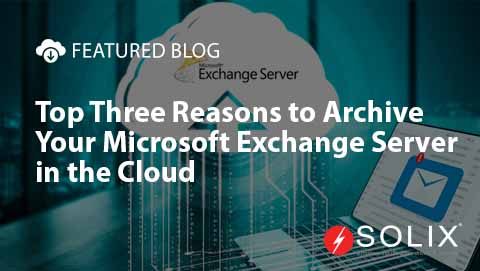
Is Archive the Same as Delete
Hello, everyone! Im Ronan, and today were diving into a question that many of us in the digital landscape have wrestled with is archive the same as delete This fundamental question is especially relevant in todays data-driven world, where managing information effectively can have far-reaching implications for organizations of all sizes.
First, lets unwrap what archiving and deleting actually mean. Archiving involves transferring inactive or obsolete data to a separate storage space for future reference or compliance. This practice allows organizations to keep their primary systems uncluttered while retaining data that may be vital down the line. Deleting, on the other hand, is quite simplethe data is gone, and once its removed, it cannot be retrieved. So, when we ask, is archive the same as delete the clear answer is no. The two concepts serve entirely different purposes in data management.
To shed light on this issue, lets bring in a real-world scenario that highlights the significance of a robust approach to data management. Consider a mid-sized healthcare provider that recently faced the daunting task of managing patient records. As their patient base grew, so did their data storage requirements. The administrators quickly realized that simply deleting old records was not a suitable strategy. If they deleted any information, they risked non-compliance with regulations that required them to retain patient data for several years.
This healthcare provider decided to implement solutions from Solix to better handle their data. With Solix archiving capabilities, they could move inactive patient records to a secure, easily retrievable storage systemeffectively answering the question is archive the same as delete By archiving their data instead of permanently deleting it, they not only complied with regulations but also streamlined their information retrieval processes, making it easier for staff to do their jobs efficiently.
Its important to highlight that aside from the legal implications of data retention, archiving can also lead to significant operational benefits. Imagine the time saved when staff can quickly access archived records versus trying to hunt through a cluttered database. Solix solutions, like their Data Management platform, empower organizations to implement effective archiving strategies while ensuring that vital data isnt lost due to hasty deletions.
Lets turn our focus to compliance for a moment. Data compliance isnt just about avoiding fines; its about maintaining trust. In todays digital atmosphere, stakeholders expect organizations to manage their data responsibly and transparently. If an organization doesnt understand the nuances of is archive the same as delete, they may inadvertently sacrifice their credibility. Solix assists in building that trust by providing tools that clarify data management processes and protect essential information.
If this sounds like a lot to tackle, youre not alone. Many organizations face similar challenges daily. For instance, a company specializing in research found themselves swamped with outdated project files. Instead of deleting these files and putting their research credentials at risk, they utilized Solix Archive Management solution. With this tool, they transitioned inactive data into a manageable system, confidently recalling that the information was still easily accessible when needed. Its not merely about fit for purpose; its about understanding that archiving is a protective measure, not merely a storage solution.
To further understand the implications at play here, lets reflect on some industry insights. A research paper I recently encountered examined the ramifications of poor data lifecycle management across various sectors. Organizations that leaned towards indiscriminate deletion practices faced increased scrutiny and regulatory challenges. In contrast, those embracing comprehensive data archiving solutions were able to maneuver compliance landscapes seamlessly. This brings us back to our original question is archive the same as delete It becomes clear that organizations must prioritize archiving to foster a sound information governance framework.
So, if youre grappling with your own is archive the same as delete dilemma, take a moment to explore how Solix can help streamline your data management processes. Their comprehensive solutions arent merely about storage; they represent a sustainable approach to fostering compliance and operational efficiency. I encourage you to sign up on the right for a chance to WIN $100! Engage with us and share your data challenges. Who knows You might gain insights that will significantly change the way you view data management.
Finally, a little call to action If you want to dig deeper into how to navigate your data lifecycle and clarify your thoughts on is archive the same as delete, dont hesitate to reach out to Solix at 1-888-GO-SOLIX (1-888-467-6549) or visit their contact page. They are there to guide you in implementing the right practices for your organizations data needs.
Before I wrap this up, let me share a bit about myself. As a passionate advocate for effective data management, I focus on guiding organizations through the complexities of their data strategies. I have spent years helping companies understand the nuances of information governance. My goal is to empower teams to transform their data into valuable insights, while keeping critical concepts like is archive the same as delete at the forefront of their decision-making.
In wrap-Up, understanding the differences between archiving and deleting is vital for any organization striving for compliance, efficiency, and trust. By leveraging solutions from Solix, organizations can navigate the muddy waters of data management while ensuring they are prepared for an increasingly data-centric future.
Disclaimer The views expressed in this blog are solely those of the author and do not necessarily reflect the positions of Solix Solutions.
DISCLAIMER: THE CONTENT, VIEWS, AND OPINIONS EXPRESSED IN THIS BLOG ARE SOLELY THOSE OF THE AUTHOR(S) AND DO NOT REFLECT THE OFFICIAL POLICY OR POSITION OF SOLIX TECHNOLOGIES, INC., ITS AFFILIATES, OR PARTNERS. THIS BLOG IS OPERATED INDEPENDENTLY AND IS NOT REVIEWED OR ENDORSED BY SOLIX TECHNOLOGIES, INC. IN AN OFFICIAL CAPACITY. ALL THIRD-PARTY TRADEMARKS, LOGOS, AND COPYRIGHTED MATERIALS REFERENCED HEREIN ARE THE PROPERTY OF THEIR RESPECTIVE OWNERS. ANY USE IS STRICTLY FOR IDENTIFICATION, COMMENTARY, OR EDUCATIONAL PURPOSES UNDER THE DOCTRINE OF FAIR USE (U.S. COPYRIGHT ACT § 107 AND INTERNATIONAL EQUIVALENTS). NO SPONSORSHIP, ENDORSEMENT, OR AFFILIATION WITH SOLIX TECHNOLOGIES, INC. IS IMPLIED. CONTENT IS PROVIDED "AS-IS" WITHOUT WARRANTIES OF ACCURACY, COMPLETENESS, OR FITNESS FOR ANY PURPOSE. SOLIX TECHNOLOGIES, INC. DISCLAIMS ALL LIABILITY FOR ACTIONS TAKEN BASED ON THIS MATERIAL. READERS ASSUME FULL RESPONSIBILITY FOR THEIR USE OF THIS INFORMATION. SOLIX RESPECTS INTELLECTUAL PROPERTY RIGHTS. TO SUBMIT A DMCA TAKEDOWN REQUEST, EMAIL INFO@SOLIX.COM WITH: (1) IDENTIFICATION OF THE WORK, (2) THE INFRINGING MATERIAL’S URL, (3) YOUR CONTACT DETAILS, AND (4) A STATEMENT OF GOOD FAITH. VALID CLAIMS WILL RECEIVE PROMPT ATTENTION. BY ACCESSING THIS BLOG, YOU AGREE TO THIS DISCLAIMER AND OUR TERMS OF USE. THIS AGREEMENT IS GOVERNED BY THE LAWS OF CALIFORNIA.
-
-
On-Demand Webinar
Compliance Alert: It's time to rethink your email archiving strategy
Watch On-Demand Webinar -
-




